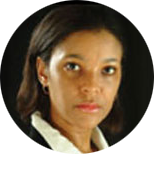
(Hons), BVC, LL.M, P.C.H.E
LEGAL Aid has been in existence in Saint Lucia since the previous government administration, however, the writer was invited to be a member of the current Legal Aid Board and will therefore limit her discussion to this Board. In this article, we will look briefly at what legal aid entails; introduce the new members of the Legal Aid Board; introduce the Executive Director of the Legal Aid Clinic; and its location.
Legal Aid is the provision of legal advice, information and representation for individuals who cannot afford legal services. This is based on the applicant’s means (income, savings, resources, wherewithal, assets) and the merits of the case. In other words, if it is found that the individual can afford legal services and/or that his or her case is without merit (there is no cause based on the facts presented), the Legal Aid Clinic will not accept the case.

The Director of the Legal Aid Clinic in Saint Lucia is Attorney-at-law, Samanthia George. Ms. George read law at the University of Essex, Colchester in England. She is a member of Gray’s Inn and was called to the Bar of England and Wales in 2002. She was then employed for four years with the Northwest London Hospitals in London as a legal research officer in Employment law and Negligence. After returning to Saint Lucia in October 2006, she held the position of judicial clerk at the Eastern Caribbean Court of Appeal until August 2011 and started her current position in November 2011 (to the present).
The current Legal Aid Board started to meet last year; and all members were appointed by the Minister of Legal Affairs, Victor La Corbinere. They include: Chairperson – Renee St. Rose (Attorney-at-law); Deputy Chairperson- Norman Francis (Attorney-at-law); RumeliaDalphinis-King (Social work), Trevor A. Philips (Customer Brokerage, Packaging, Freight forwarding and Shipping), Maurice Compton (Attorney-at-law), Director of the Legal Aid Clinic and Secretary of the Board, Samanthia George (Attorney-at-law) and the writer (Attorney-at-law). All Board members (except Ms. George) were appointed in 2013.
The Board acts under the general directions of the Minister of Legal Affairs, however maintains its own autonomy to carry out its statutory mandate and functions. The decision therefore lies ultimately with the Legal Aid Board to determine who meets the requirements for legal aid after perusing the application forms. In order to qualify for legal aid, individuals must demonstrate that they are underprivileged, vulnerable, poor and/or juvenile.
Applicants fill out necessary forms which cost only five dollars ($5.00) at one of the following locations: the Legal Aid Clinic, some government departments, National Printery and the High Court Registry. It is advised that applicants have at least one meeting with the Executive Director prior to completing the forms, so that she can screen individuals at the initial stage of the process. Thereafter, the Executive Director would be in a better position to make recommendations to the Board on whether or not the applicant has met the requirements for legal aid.
The Legal Aid Clinic cannot assist in all cases but may be able to facilitate guidance on the following matters: most criminal matters including magistrates, Court of Appeal matters such as bail applications; sex with minors; assault; grievous harm; and attempted murder. The Legal Aid Clinic can also assist in a selection of civil matters including some uncontested divorces; wills and small estates; child welfare; some contract and tort matters.
There are a number of attorneys in private practice who have volunteered their services to assist those who need legal assistance. The Legal Aid Clinic could not function without them as there is presently only a skeleton staff, with no other lawyers employed with the Legal Aid Clinic except Ms. George.
For those in need of legal aid, they should do the following:
1) Visit the Legal Aid Clinic on Brazil Street in Castries
2) Meet with the Executive Director, Ms.Samanthia George
3) Fill out the application form
4) Pay five dollars ($5.00);
5) The form will be evaluated, and if legal aid is not granted, the applicant will be notified in writing;
6) If successful, the applicant will be asked to complete an acceptance form which must be notarised by an attorney or Justice of the Peace;
7) A Legal Aid Certificate will be issued.
8) The applicant will be assigned to a lawyer who specialises in the area in which one requires assistance.
The Legal Aid Clinic is located on 25 Brazil Street, 1st Floor Old Stanthur Building, Castries (opposite the Derek Walcott square). Please contact Samanthia George – telephone number 451-7893 or 724-3363; email address legalaidslu@candw.lc. The office is open from 8:00 a.m. to 4.30 p.m. Monday to Friday.
Ms. Trudy O. Glasgow is a practising attorney at the law firm Trudy O. Glasgow & Associates, a court-appointed mediator and author in Saint Lucia (and has also taught law at University level in the UK)*
This column is for general use only, for advice specifically for your case, please see your lawyer.
Share your thoughts and comments: you are invited to email me at trudyoglasgow@lawyer.com
Next week: Why argue?




![Simón Bolívar - Liberator of the Americas [Photo credit: Venezuelan Embassy]](https://thevoiceslu.com/wp-content/uploads/2025/12/Simon-Bolivar-feat-2-380x250.jpg)



